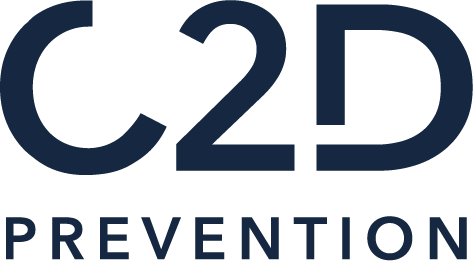WORKSHOP
Gentle Mobility
Soft mobility

Reclaim control of one's attention.
On the road, as in the workplace, vigilance cannot be delegated.
Every day, thousands of professionals get behind the wheel to travel to their workplace or carry out job-related tasks. Too often, these trips are seen as “neutral” or low-risk. Yet, road travel remains one of the leading causes of work-related accidents.
This paradox is largely explained by how our brain works: in automatic mode, it reduces its analytical capacity, ignores subtle warning signs, and makes us more vulnerable to routine errors. The “Road Risk” workshop offers a practical and interactive exploration of the cognitive mechanisms that influence our driving behaviors, with the goal of effectively preventing accidents.
OBJECTIVE
CONTENT
- Practical exercises to raise awareness of dangerous driving behaviors, including under the influence of alcohol or drugs
- Topics covered: neuroscience and brain functioning (automatic mode, conscious adaptive mode), cognitive biases affecting driving behavior
- Strategies to train the brain and improve safety
FORMAT
- Coaching :interactive discussions, role-playing, case studies
MAKE PREVENTION A REFLEX!
REGISTER YOUR COMPANY NOW
and ensure a safer work environment for everyone!
Format & Target Audience
The workshop can be delivered in person or remotely, led by an expert in behavioral safety and human factors (online version certified as VILT – Virtual Instructor-Led Training).
It is intended for all employees, supervisors, managers, and executive team members.
Recommended group size: 6 to 12 participants, allowing for personalized support and enriching experience sharing.
Learning Objectives
- Understand the limitations of the brain when operating in automatic mode
- Identify cognitive biases that impair decision-making on the road
- Recognize the most common risk situations in a professional context
- Strengthen one’s ability to remain vigilant despite routine and distractions
- Adopt practical strategies to ensure personal and colleague safety during travel
- Foster a shared culture of road risk prevention within the organization
Educational Approach
The workshop uses a dynamic, experiential, and solution-oriented teaching method:
- Cognitive immersion through simulation and play
- Simplified scientific input to understand the underlying mechanisms
- Co-construction of solutions tailored to job realities
- Facilitation by an expert in road safety and human factors
Depending on the time available
Workshop Programme
1The Myth of the Good Driver: Understanding Automatic Behaviors
Interactive decoding:
Through quizzes and guided discussions, participants explore the mechanics of “autopilot” driving: conditioned reflexes, lowered attention, cognitive comfort zones.
Case studies:
Real-life examples of accidents involving “experienced but distracted” drivers illustrate how routine can undermine vigilance.
Objective:
Demonstrate that experience alone does not guarantee safety without active awareness.
2Brain and Driving: The Traps of Cognition
Brief neuroscience insights:
How the brain functions under stress, fatigue, or multitasking: narrowed attention span, partial information processing, mental shortcuts.
Common cognitive biases:
- Overconfidence
- Tunnel vision
- Normalcy bias
- Underestimating risk in familiar environments
Objective :
Provide tools to recognize these invisible traps that influence our decisions behind the wheel.
3Taking Back Control: Active Vigilance Strategies
Behavioral toolbox:
Simple and effective methods to stay alert:
- Self-check for concentration
- Start-of-trip rituals
- Re-centering breaks during travel
- Micro-reflexes to prevent attention drift
- Focus : Driving and Distractions
Participants assess their own exposure to distractions such as phones, GPS, notifications, conversations, and identify tailored solutions.
Objective:
Encourage small, practical behavioral changes easily applicable to daily life.
4Practical Simulations: Experience to Understand
Role-playing and mental simulations
Participants face realistic driving scenarios, such as role plays simulating driving under the influence of alcohol or drugs.
Each situation sparks discussion on causes and possible countermeasures.
Group feedback
A supportive exchange on personal experiences, habits, and ways to enhance driving practices without guilt.
Objective:
Turn analysis into personal insight and lasting behavior change.
Why choose
this Workshop ?
Because on the road, it’s not the error that kills—but the routine.
Too many seasoned drivers, confident in their experience, underestimate their own exposure to road risks.
This workshop acts as a revealer of often unconscious risky behaviors and equips participants to:
Better anticipate
and respond to unexpected situations
Reduce risky behaviors linked
to pressure or fatigue
Strengthen the culture of road safety
in their professional environment
Protect their physical integrity
and that of other road users
Conclusion
Driving is a professional activity in its own right and deserves support that reflects its true stakes.
The “Road Risk” workshop helps change road behaviors with relevance, clarity, and impact.
To integrate this workshop into your prevention plan or tailor it to your specific professional needs,
contact our team today.
